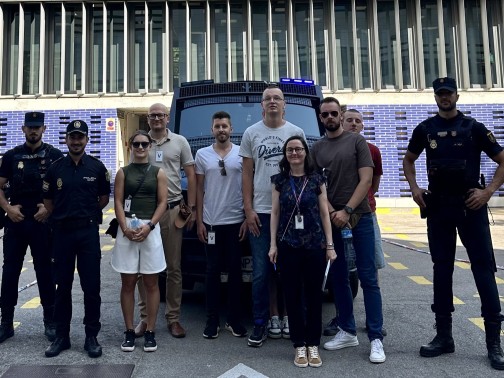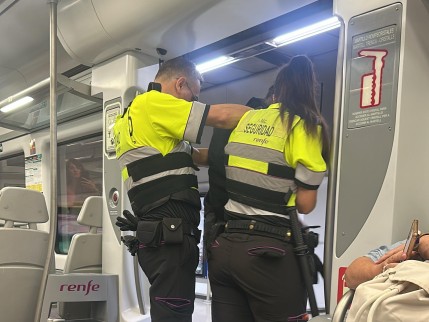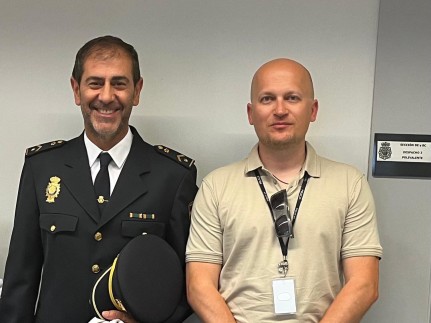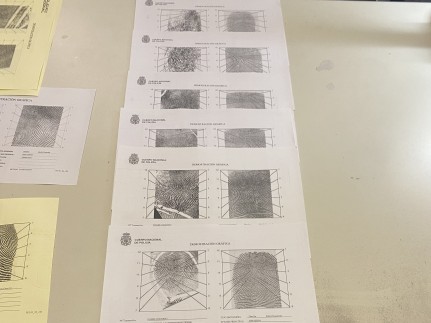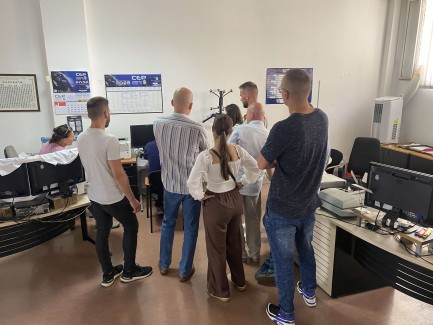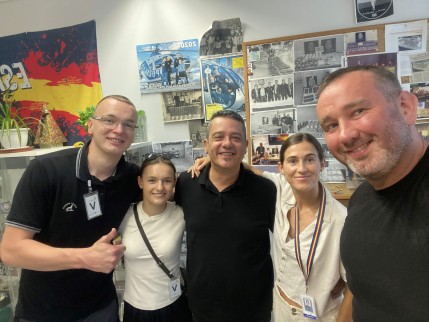Nine students from the Police Academy in Szczytno, studying Police Science and Criminology, took part in an Erasmus+ internship in Barcelona from 16-27 June, 2025. They were hosted at the Complejo Policial Nacional La Verneda.
At the beginning of the mobility, the participants attended a meeting focused on the presentation of the Spanish National Police. The course of service was outlined – from the recruitment stage through successive career levels, including training and promotion requirements. The organizational structure of central and regional units was also discussed. Participants learned how the police hierarchy functions in Spain and what the professional pathway of an officer looks like.
The next stage of the internship involved a presentation of the policing model in Spain, including the division into various types of forces with their respective powers and duties. The roles and responsibilities of the National Police, Guardia Civil, and regional police forces were explained. The Polish students gained insight into different ways of organizing law enforcement, which helped them understand how to adapt policing models to the specifics of a country and its political system.
During the internship, the students visited regional units dealing with immigration and border issues, security and protection, as well as judicial and criminal police. There, they were introduced to activities such as legality checks for residence, methods of combating organized crime, cooperation with prosecutors and courts, and the principles of securing mass events. This experience allowed for a better understanding of the similarities and differences between procedures used in Poland and Spain.
On the final day, the group from Szczytno visited Barcelona’s Josep Tarradellas El Prat International Airport, where they were presented with the organization of the airport security services. Passenger control, cooperation with other agencies, and threat response procedures were discussed. In an era of increasing terrorist threats and growing passenger traffic, knowledge of such procedures is extremely important for officers serving in airport and border units.
This Erasmus+ internship once again confirmed the significance of international experience exchange in uniformed services. Participation in meetings with officers of the Spanish National Police allowed the Polish students to directly learn about their methods of work, organizational structures, tools, and the challenges they face. Such knowledge is invaluable for the ongoing development of professional competencies and for adapting to the evolving reality of police service in Poland.



